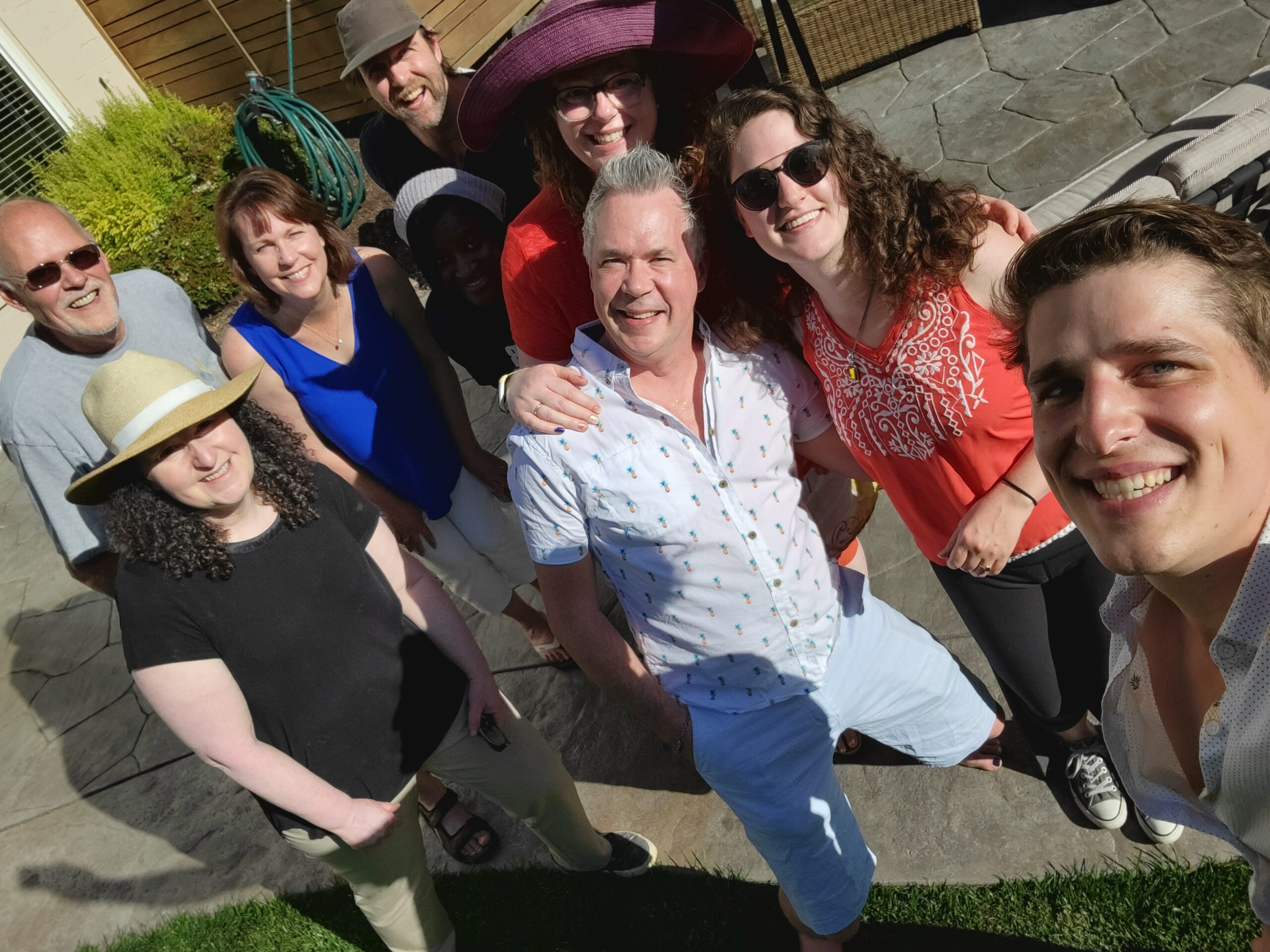Successful pursuit of happiness requires intentionally pursuing counter-intuitive life strategies.
Over 40 research studies have shown that cultivating gratitude reliably increases our happiness, improves our relationships, and makes us healthier. As coaches, we may have our own practices to amplify and sustain our gratitude. In over a decade of coaching, I’ve found that each and every client has found their own path to accessing gratitude and creating unique practices that work for them. Simply witnessing their evolution increases my endorphins and happiness.
What are the benefits of living in and from gratitude? What does identifying its presence in the variety of my life create? Take a look at the diagram, below. Is there an area where you could turn up the volume?
Years ago, I needed to be more grateful for my husband. I was in a mindset that everything he was doing wasn’t the best way and it was definitely diminishing my joy and positive life attitude. From folding towels to how the dishes were arranged to what books or TV were of interest, I was focused on what he was doing wrong. My coach and I were exploring my angst and desire for change, when the insight came to journal 3 things a day I appreciated about him. Within a week, it naturally moved to 5 and soon, my gratitude for this soulmate and love of my life soared to over a page. I still use this technique whenever I feel dissatisfied or critical—a light goes off and now I can shift instantaneously, most days. We can use our knowledge about how the brain works to keep this positivity growing.
From benefits to resources, here are two to incorporate more gratitude in your life (so glad there’s no limit).
Online Interactive Quiz & 7 Practices
http://happierhuman.com/how-grateful-are-you/
This interactive quiz and the list of practices provides guidance about whether the practice is to stimulate your adaption toward gratitude.
Gratitude Ripple Effect
- What went well today?
- Who do you appreciate for today?
Here’s how it goes:
- Bring attention to your relationships on a daily basis
- Spend sixty seconds to recall 3 positive memories of the day, conditions that resulted in more energy and positivity
- Name for yourself 3 people you appreciate and are grateful for their presence in your life.
What Can Happen?
Not only does your focus of attention here strengthen you, the message transmits to others, creating a ripple effect of gratitude. And, you might just take an extra minute and let those persons know!
Now let’s shift to your clients—what would support them and which ICF Core Competency is applicable? How about #7 – Evoke Awareness? You can invite gratitude with your clients with prompts and practices that create client awareness.
Here’s an example —
Send one or two questions that invite your client to reflect on how gratitude is showing up in their lives.
- What activities are increasing your energy during the day?
- Who are the people that add positivity to your attitude and mood?
- How do you sustain connection to these experiences so you see and choose these opportunities more often?
Our brains are very busy and the world gives us what Lao Tzu called the 10,000 distractions and I would posit with social media and the internet, we can say 10 billion distractions. Questions help to focus our minds. Where we focus our attention allows the brain to make new connections.
With awareness of new connections we gain clarity about our motivation and possibilities so we may choose how to align our new actions toward more desirable results, consciously
May you enjoy this autumn with a renewed sense of gratitude and abundance. Surprise someone with a random act of kindness and if possible, do it anonymously.
Blessings, ICF Oregon!
Blog is by Past President of ICF OR Sarah E. Graves, PCC, and Janet M. Harvey, MCC, former President of ICF Global and current board member of ICF Institute of Thought Leadership.
November also brings a national holiday that has tragedy and genocide, a stark contrast to schoolhouse history. Educate yourself with the resources, below, and appreciate that you’ve chosen to live in “interesting times.” Our courage and commitment to civility is our choice and our challenge.
Here are some articles on USA origins of Thanksgiving:
https://www.wbur.org/hereandnow/2020/11/25/native-americans-thanksgiving-mourning
https://www.insider.com/history-of-thanksgiving-2017-11
https://www.salon.com/2018/11/22/have-millennials-stopped-celebrating-thanksgiving/
Here’s the link to the scene with Wednesday– https://www.youtube.com/watch?v=6iGbxUAM0cc







